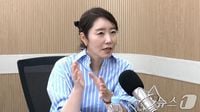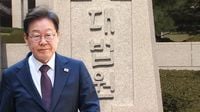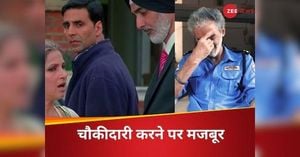At 3 PM on May 1, 2025, the Supreme Court of South Korea is set to announce its ruling in the appeal trial of Lee Jae-myung, the Democratic Party of Korea's presidential candidate, who faces allegations of violating election laws. This high-stakes case has captured national attention, particularly as it comes just weeks before the upcoming presidential elections.
The Supreme Court's decision follows a remarkably swift review process, with the case being assigned to the plenary session just nine days ago, raising eyebrows about the expedited timeline. Lee is accused of making false statements during the 2021 presidential campaign, including denying knowledge of Kim Moon-ki, the former head of the Seongnam Development Corporation, and alleging coercive actions by the Ministry of Land, Infrastructure and Transport regarding a land use change.
In the first trial, Lee was sentenced to one year in prison, suspended for two years, but the appellate court acquitted him, leading to the current appeal. As the Supreme Court prepares to issue its ruling, security around the courthouse has reached unprecedented levels, with police buses creating barriers and access to the area heavily restricted.
According to reports, approximately 5,000 police officers have been deployed to maintain order, anticipating potential protests and public gatherings surrounding the verdict. Vehicle access to the Supreme Court has been banned since 9:30 AM on the day of the ruling, with only accredited journalists permitted entry, highlighting the tense atmosphere.
Lee Jae-myung will not be present in court for the ruling, as defendants are not required to attend appeal hearings. Instead, his legal team will represent him. The proceedings will be broadcast live, allowing the public to witness the Supreme Court's deliberations, a rare occurrence in South Korea's judicial history.
The Supreme Court's Chief Justice, Cho Hee-dae, will open the session by summarizing the case's key facts and the majority opinion of the justices. The final decision will hinge on the votes of the twelve justices, with a majority of at least seven votes needed to determine the outcome.
Legal experts suggest three potential scenarios for the ruling: the Supreme Court could uphold the appellate court's acquittal, dismissing the prosecution's appeal; it could overturn the acquittal and remand the case back to the Seoul High Court for retrial; or, in a highly unlikely move, it could issue a direct guilty verdict against Lee.
As the trial approaches, public sentiment is divided, with many viewing the rapid pace of the proceedings as indicative of the political pressures surrounding the case. Kang Seon-woo, a member of the Democratic Party, expressed skepticism about the nine-day review period, suggesting that it is insufficient time to prepare a judgment, particularly if a remand is necessary.
The implications of the ruling extend beyond the courtroom, potentially influencing Lee's candidacy in the upcoming elections. If the Supreme Court affirms the acquittal, it would alleviate significant legal burdens for Lee, allowing him to focus on his campaign. Conversely, a remand could prolong the legal battles and cloud his electoral prospects.
Key points of contention in the case include Lee's statements regarding his relationship with Kim Moon-ki and his claims about the Ministry's alleged threats during the land use change process. In previous rulings, the courts found that Lee's denial of knowing Kim did not constitute a false statement, and while there may have been pressure from the Ministry, it was difficult to classify his comments as definitively false.
The Supreme Court's ruling is expected to be announced shortly, and its impact on the political landscape will be closely monitored. As the nation waits for the decision, the atmosphere remains charged with anticipation, reflecting the high stakes involved in this pivotal moment for Lee Jae-myung and the Democratic Party of Korea.
In summary, the Supreme Court's decision today could reshape the political dynamics in South Korea as the country heads towards a critical election period. The outcome will not only determine Lee's immediate future but will also resonate throughout the political landscape, influencing public perception and voter sentiment in the lead-up to the election.





